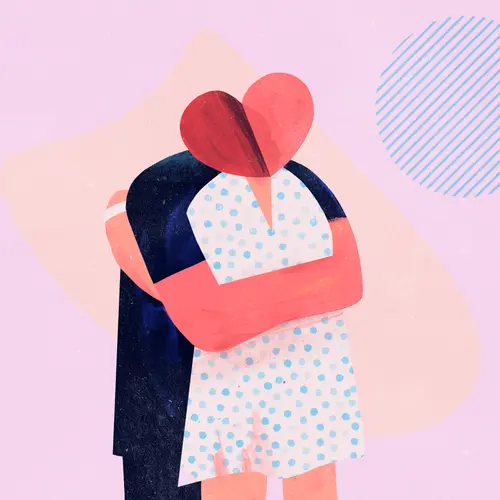If you have ovarian cancer and your bathroom routine is out of whack, you’re not alone. Constipation is a common problem that can be uncomfortable and stressful.
According to the National Cancer Institute, constipation means infrequent bowel movements or poop that’s hard, dry, or tough to pass. Doctors usually describe constipation as fewer than three poops a week.
When it comes to ovarian cancer, common reasons for constipation include:
- The tumor itself
- Medicines you take
- Lack of physical activity
- Not enough fluids
Fortunately, there are ways to treat and prevent this unpleasant symptom.
How Common Is Constipation in People With Ovarian Cancer?
Constipation often affects people with all types of cancer. In fact, nearly 60% of all cancer patients report this symptom.
One study found that 25% of people with ovarian cancer had bothersome gastrointestinal (GI) symptoms like constipation.
People with advanced cancer are most likely to be constipated. But constipation can also be an early sign of ovarian cancer. Often, constipation in people with cancer goes unnoticed and isn’t properly treated.
Why Does Ovarian Cancer Cause Constipation?
Several things may be to blame for your constipation.
Sometimes, a large tumor blocks your intestines and keeps your digestive system from working as it should.
The medicines you take can also be a problem. Chemotherapy may disturb the nerve supply to your bowels. Opioid painkillers can trigger a range of reactions in the body. They make it take longer for your stomach to empty and reduce fluid in your intestines, resulting in poop that’s hard and dry.
Your diet is another possible cause. Ovarian cancer and its treatments can affect your appetite. If you don’t eat enough fiber, your bowels might not work properly.
When you’re ill with ovarian cancer or with the side effects of treatment, you also probably don’t get as much exercise as you used to. That can halt the movement of poop through your gut.
Water also helps poop pass through your bowel. You need to drink enough to ensure that this process happens without issues.
Symptoms of Constipation
Not being able to poop is the most obvious symptom of constipation. Other signs may include:
- Your poop is lumpy or hard.
- You strain when you go.
- You feel like there’s a blockage in your rectum that won’t allow you to poop.
- You have stomach pains or cramps.
- You feel nauseous or bloated.
- You feel like you haven’t completely emptied your bowels after you poop.
- You have small, hard poops that look like pellets.
- You pass gas frequently or burp a lot.
- You pass liquid poop that looks like diarrhea. That happens when soft poop leaks around stool that’s stuck in your rectum.
How to Relieve Constipation When You Have Ovarian Cancer
Doctors might suggest you try lifestyle changes, medicines, or a mix of both approaches to relieve constipation.
You may want to give some simple self-care techniques a go. But always discuss them first with your doctor. Some approaches include:
- Drink 2-4 more cups of water each day
- Cut out caffeine to avoid dehydration
- Add high-fiber foods, such as bran or prunes, to your diet
- Avoid high-fat foods, dairy products, or any other foods that constipate you
- Exercise daily
If these changes don’t do the trick, your doctor may recommend medicines to help you find relief. Treatment options include:
- Fiber supplements: These add bulk to your stool and help it pass through your intestines more quickly.
- Stool softeners: Stool softeners pull water from the intestines to keep your stool moist.
- Stimulant laxatives: They trigger your bowels to contract and push stool along. If you take them too long, you can become dependent on them, but this may not be an issue for people with advanced cancer.
- Saline laxatives: This type of laxative draws fluid into your intestines to help you poop. Overuse of them can cause a fluid or electrolyte imbalance. So doctors don’t usually recommend them for people who are malnourished.
- Enemas or suppositories: They help produce a bowel movement and are sometimes used when other treatments don’t work.
Your doctor will likely consider your overall health, the cause of your constipation, and your cancer outlook before they recommend a certain treatment.
How to Prevent Constipation When You Have Ovarian Cancer
Once you’ve had a bout of constipation, you probably want to make sure that it won’t happen again. Some of the things that help relieve constipation, like a high-fiber diet, exercise, and plenty of fluids, can also keep it from recurring.
Other ways to lower your risk include:
- Avoid foods and drinks that cause gas, such as broccoli or beans.
- Don’t chew gum or use straws, as these habits can also cause gas.
- Poop when you feel the urge instead of holding it.
- Have your meals at about the same time each day.
- Keep track of when you poop, so you’ll notice any problems quickly.
How Can Caregivers Help?
If you’re caring for someone with ovarian cancer who has constipation, there are ways you can help:
- Offer them lots of fluids. Prune juice or hot water with lemon might prompt their bowels to move.
- Encourage exercise, even if it’s just a little at a time. A short walk can be beneficial.
- Keep a log of their bowel movements, so you know if they’re constipated.
When to Call the Doctor
Call your doctor if:
- You haven’t pooped in 3 days (or whatever number of days that your doctor tells you is cause for concern).
- You still haven’t pooped 1 or 2 days after taking a laxative or stool softener.
- You have bloody poop or blood around your anal area.
- You have loose or watery poop.
- You have stomach cramps or vomiting that doesn’t go away.

